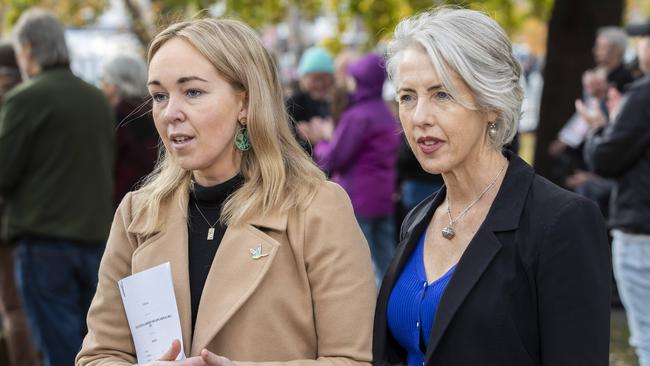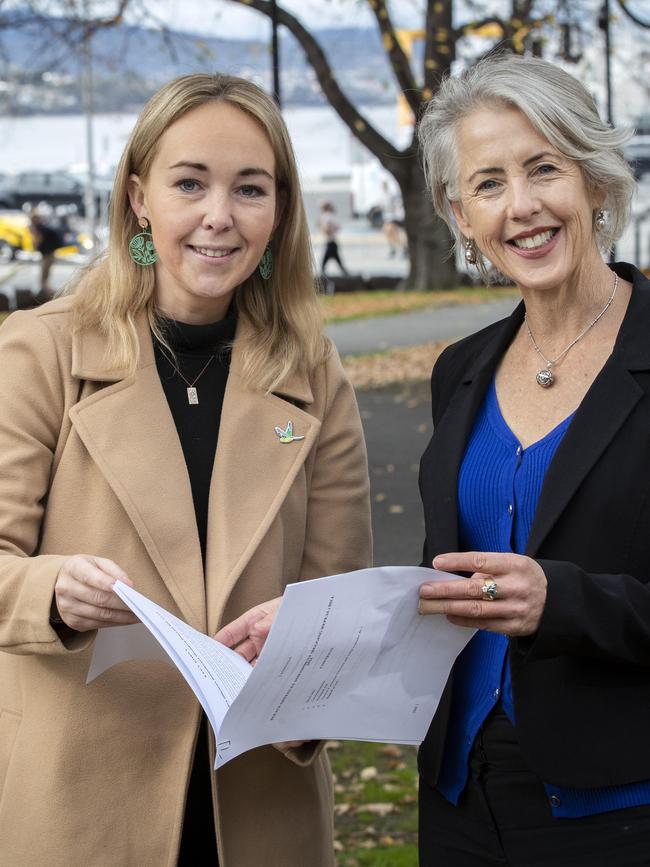Greens seek to repeal strange law making it illegal to beg or expose wounds or deformities for money
‘It should not be a crime’ — A strange Tasmanian law could soon be repealed with legislation expected to be tabled on Tuesday.

Tasmania
Don't miss out on the headlines from Tasmania. Followed categories will be added to My News.
The Greens will again move to repeal the ban on begging, saying the state is the last Australian jurisdiction where it remains a criminal offence.
The Police Offences Act provides that “a person shall not in a public place beg or expose wounds or deformities, or place himself or herself or otherwise act so as to induce, or attempt to induce, the giving of money or other financial advantage, or instigate or incite another person to do any of those things”.
Greens member for Lyons Tabatha Badger said the party would table legislation in state parliament on Tuesday.
“This is a move that is widely supported by community sectors as well as the Australian Lawyers Association,” she said.
“This is an absolutely necessary move. The cost of living crisis is hitting Tasmania is hard and it should not be a crime to ask for help.
“Begging was made a crime in 1935 during the Great Depression, it has no place to still be criminalised in a modern empathetic Tasmania.”

Ms Badger said the bill would still allow police to remove people who were being a nuisance or obstructing traffic.
The Police Offences Act provides that “a person shall not in a public place beg or expose wounds or deformities, or place himself or herself or otherwise act so as to induce, or attempt to induce, the giving of money or other financial advantage, or instigate or incite another person to do any of those things”.
The offence carries a maximum penalty of six months imprisonment.
Several attempts have been made to remove the law from the statue books.
Then Minister for Police, Fire and Emergency Services Michael Ferguson pledged to do so in 2019.
Current minister Felix Ellis said the government supported the move.
“The government however considers that it is necessary to ensure that there is the authority for police to move people on in the rare occasions where they are engaging in intimidating or harassing behaviour towards vulnerable people which is deterring people from patronising businesses or public facilities such as toilets,” he said.



